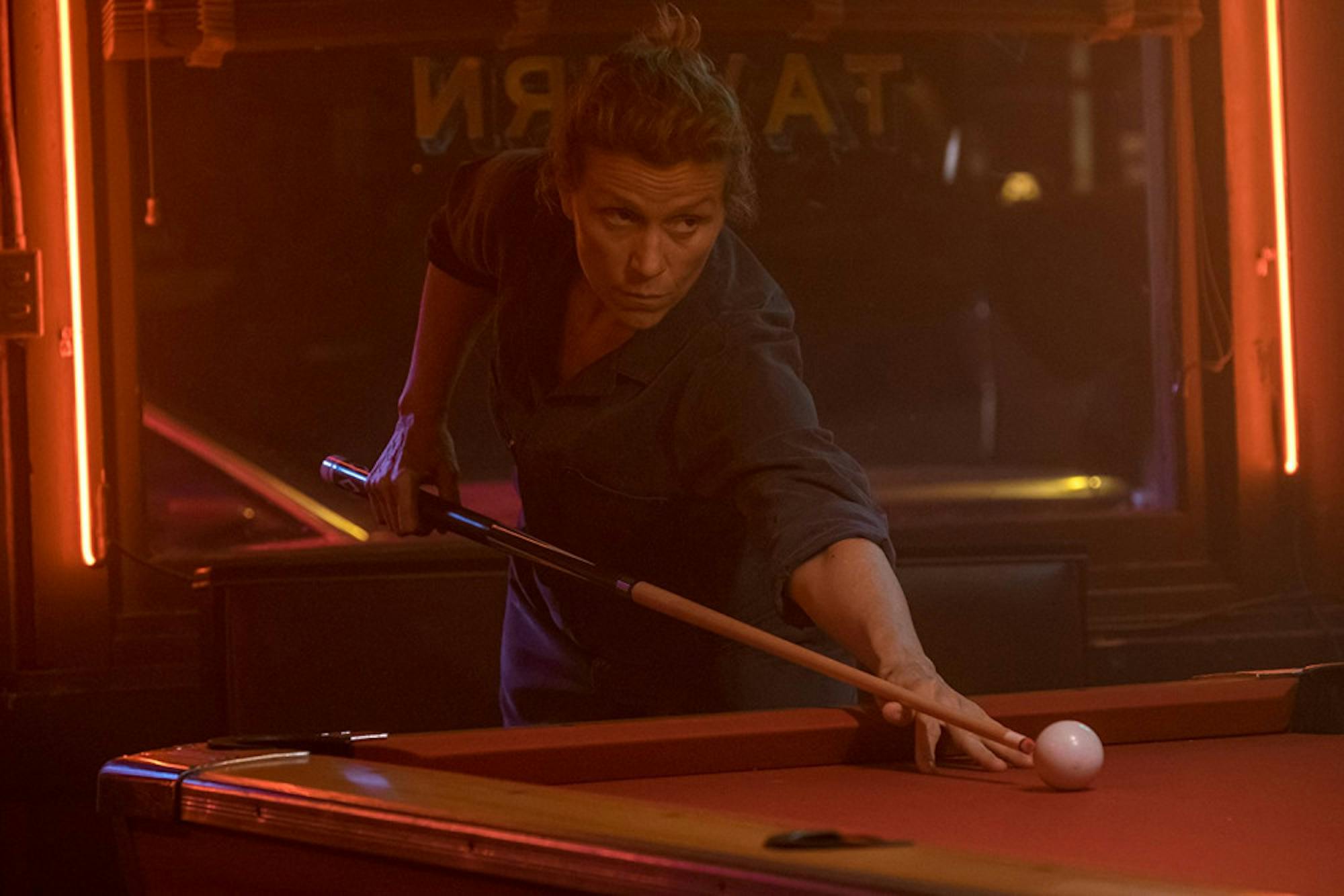Coming off its Venice premiere in September (where it received a standing ovation), “Three Billboards Outside Ebbing, Missouri” (2017) received a flurry of early awards season buzz. Critics heaped their initial praise on its timely themes — violence against women, corrupt police and casual small-town racism — its gallows humor and its raw, mesmerizing performances, particularly from lead Frances McDormandas Mildred. Going into Sunday’s Oscars, in a crowded, diverse field including A24 darling “Lady Bird” (2017), fantastical romance “The Shape of Water” (2017) and horror-satire “Get Out” (2017), British-Irish writer-director Martin McDonagh’s “Three Billboards” is the narrow favorite to take Best Picture. And that has many inside and outside the industry shaking their heads.
“Three Billboards,” which has been steadily gaining momentum since it nabbed the Golden Globe for Best Motion Picture - Drama, has been courting controversy ever since it transitioned from festival fare to serious Oscar contender. Ira Madison III of The Daily Beast likened the film to“an attempt at emotional manipulation,” branding it “wholly offensive.” Pacific Standard’s Hanif Abdurraqib called it “hopelessly bad on race.” Conversely, on Tuesday, The Guardian’s Rachel Aroesti published a piece titled “Why ‘Three Billboards Outside Ebbing, Missouri’ should win the 2018 best picture Oscar” in which she claims the film “preserves fiction’s right to nuance and complexity.”
The backlash over “Three Billboards” largely comes from the film’s treatment of racial issues and police corruption and brutality. In particular, the redemption arc for Sam Rockwell’s corrupt, racist cop Jason Dixon has gathered scorn, with many calling it unearned, lazy and heavy-handed. The character (who is known by the whole town to have tortured black men in his custody) is seen brutally beating an innocent bystander in the film’s second act. The callous manner he adopts toward the destruction he leaves in his wake have led many to question his so-called redemption.
Equally concerning to many, however, is the glib racism of, well, everyone else in the eponymous town. Woody Harrelson’s terminally ill police chief, whom we are constantly reminded is a 'good man,' is perfectly willing to detain Mildred’s friend indefinitely (one of the film’s only black characters) on minor charges to get leverage on Mildred. Mildred herself, in her righteous anger over her daughter’s rape and murder, sees no problem in casually tossing around racial slurs when bantering with Rockwell’s character. That particular scene was cited in Abdurraqib’s criticism of “Three Billboards,” and he also noted that it seems to be curiously absent from many other critics’ praise of the film.
The clumsiness with which “Three Billboards” handles race is complicated by the fact that race is not really the film’s central concern. On the surface, it is a story of female rage, small-town social politics and unspeakable violence against women. Police corruption is only the lens through which the film views this conflict. Of course, discussions of race are necessary when talking about police corruption, yet the decision by the filmmakers to make police corruption such a central part of the film also brands each of “Three Billboards’” interactions with race as a deliberate choice. As Abdurraqib more eloquently points out, “The movie didn't need racial provocation to get its point across, and McDonagh clearly wasn't the writer to handle it.”
The foregrounding of racial issues in a film that is not about race is what causes “Three Billboards” to ultimately fail. To take these considerations out of the film would have also left it incomplete, but it falls so flat on racial issues, not to mention its incessant mockery of Peter Dinklage’s character for his dwarfism and its often cartoonish writing (Mildred's final feuding words to her daughter, "I hope you get raped!" being one particularly unfortunate example), that one wonders exactly what the filmmakers were trying to accomplish. Madison’s piece calls it a film in which “white people learn how to be good to one another at the expense of black people” and predicts it could become “the next ‘Crash’ (2004).” One sincerely hopes that “Three Billboards” will instead crash out.
'Three Billboards' hurtles toward Oscar controversy

Frances McDormand in 'Three Billboards Outside Ebbing, Missouri' (2017).





